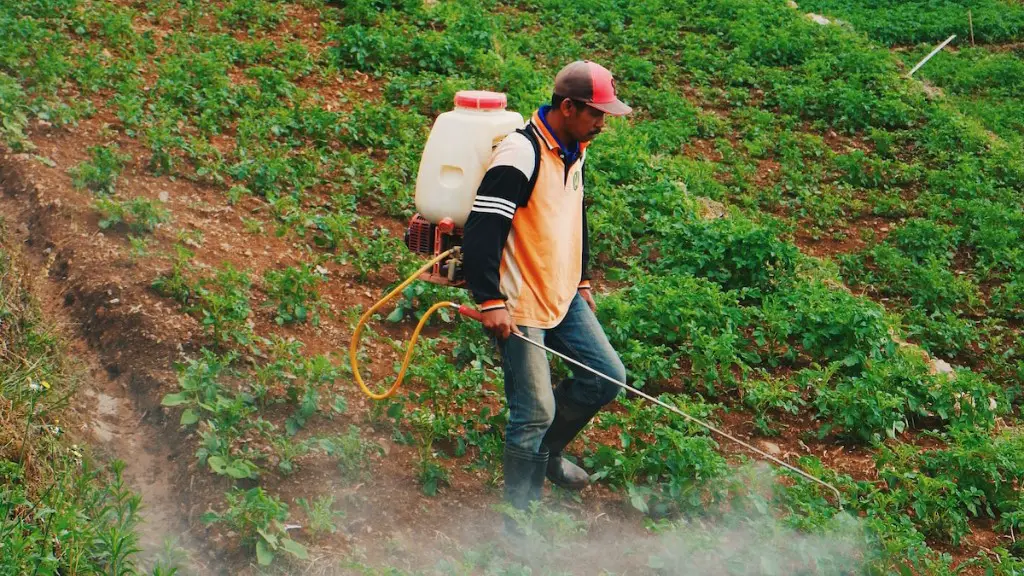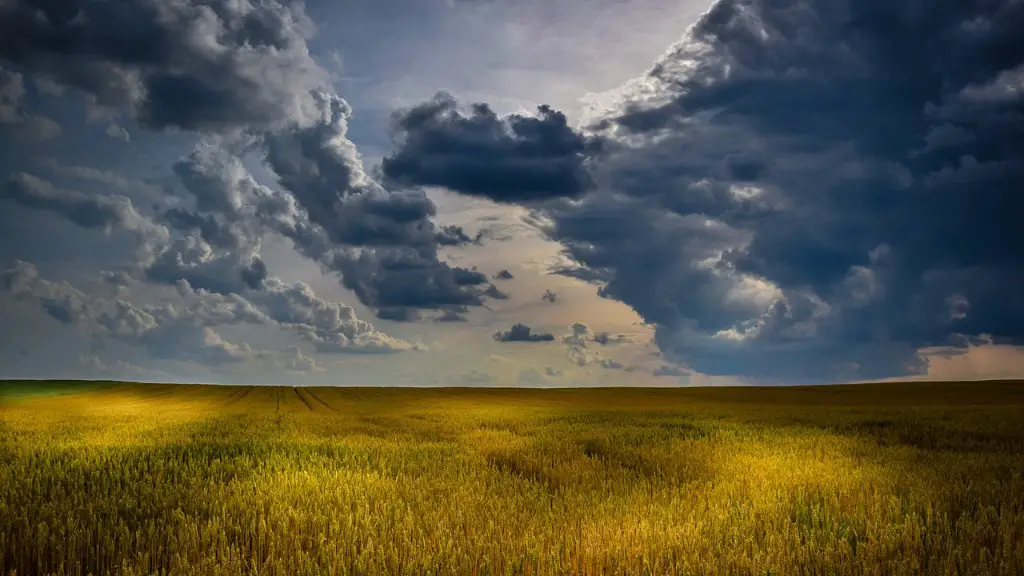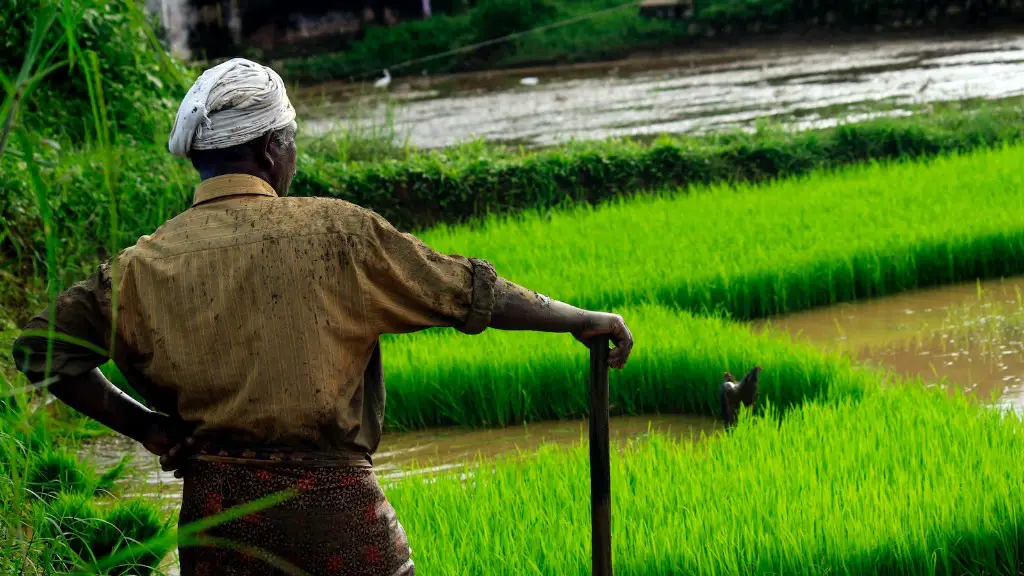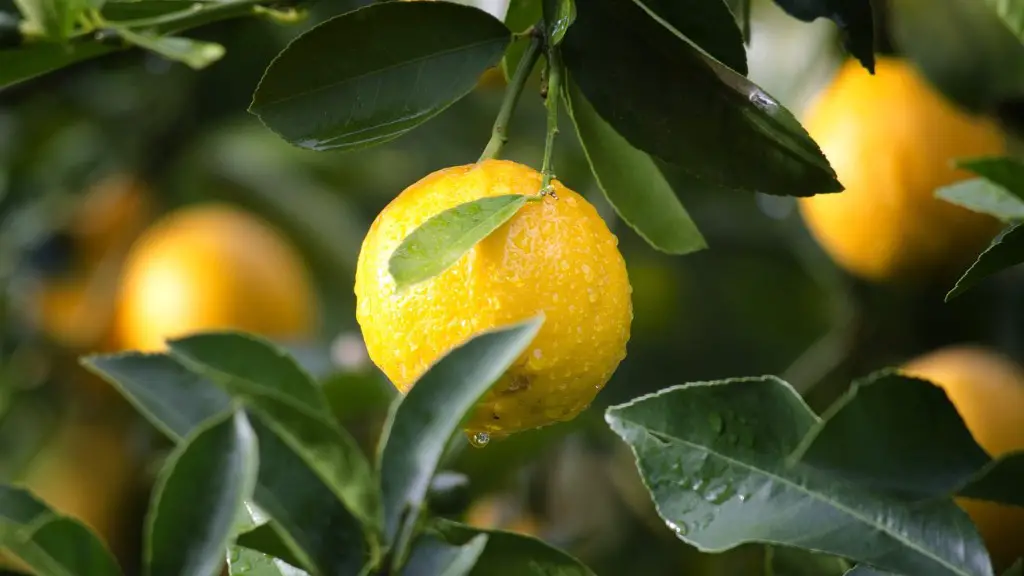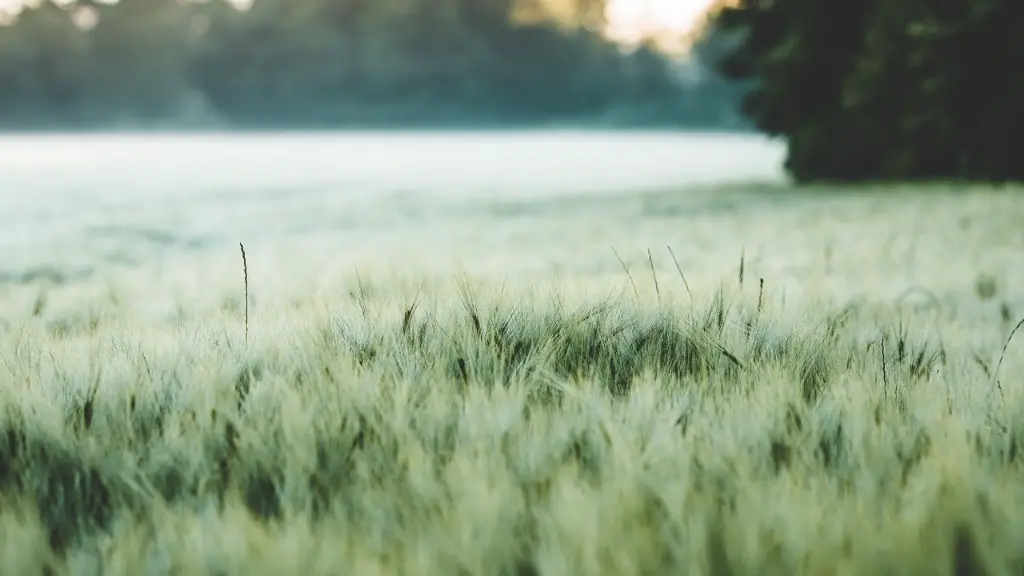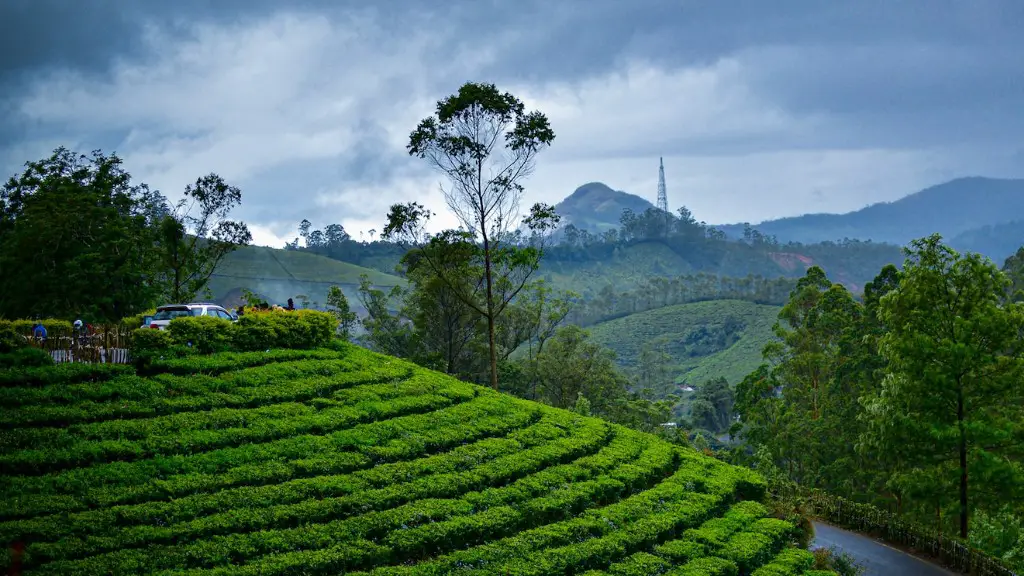Bees are essential for the pollination of many crops. One out of every three bites of food we eat is made possible by pollinators like bees. While bees pollinate, they transfer pollen from the male reproductive organ, or stamen, of one flower to the female reproductive organ, or pistil, of another. This process fertilizes the plant so that it can produce fruits, vegetables, and seeds.
Bees are used in agriculture for crop pollination. One bee can pollinate up to 1,500 flowers per day.
What bee species is used for agriculture?
European honey bees are the most popular choice for crop pollination, as they are easy to transport between farms and orchards. However, there are other types of bees that can also be used for this purpose.
Pollinators are essential to the world’s food supply and to the reproduction of many flowering plants. Three-fourths of the world’s flowering plants depend on pollinators, such as bees, bats, beetles, and butterflies. More than 30 percent of the world’s food and flowering plants, including 130 fruits and vegetable plants, depend on insect pollination. Without pollinators, our food supply would be greatly diminished.
What are 5 reasons why bees are important
Bees are important for a variety of reasons. They help to produce 1/3 of our food supply, help provide half of the world’s fibers, oils, and other raw materials, create many medicines, provide food for wildlife, and help prevent soil erosion.
Honey bees and other insects play a vital role in pollinating crops in the United States. There are over 100 crops that depend on pollination, and without these pollinators, our diets would be much less diverse and plentiful. Fruits, nuts, and vegetables would be in short supply, and we would miss out on the many health benefits that these foods provide. We are grateful for the pollination services that honey bees and other insects provide, and we encourage everyone to do their part to protect these important creatures.
How much do bees contribute to agriculture?
Honeybees are essential for the pollination of many crops in the United States. Each year, they pollinate billions of dollars worth of fruits, nuts, and vegetables. Without them, many of these crops would not be able to grow.
As honeybees are one of the most important pollinators for wild plants and crops, they are closely linked to both agriculture and biodiversity. Many plants, including food crop plants, depend on insects to move pollen between their flowers, that allows them to produce seed and fruits.
Why do farmers keep bees in their orchards?
If you want to have a fruitful harvest, you need bees to enhance pollination! Without enough pollination, you’ll only end up with a disappointing number of fruits. So if you’re growing cherries, avocado, strawberries, macadamia, or other flowering trees, make sure there are plenty of bees around to help with pollination.
Your organic vegetable garden will show increased production and produce larger and more uniform fruits as a direct result of the honeybees’ tireless work. They are responsible for pollinating ⅓ of the crops that we eat, including almonds, apples, strawberries, and so much more! Thanks to the honeybees, we can enjoy a wide variety of delicious fruits and vegetables.
Why do farmers prefer that bees pollinate their crops
Bees are important pollinators of many fruits, vegetables, and other plants. They help to improve the yield of these plants by transferring pollen from the male parts of the flowers to the female parts. This results in the flowers being fertilized and producing fruits, vegetables, and other plant products. Numerous studies have shown that pollination by bees can significantly improve the yield of many different types of plants, including apples, blueberries, and strawberries.
The world without bees would be a dire place for humans. We would lose access to many fruits and vegetables, as well as the animals that rely on them for food. The global human population would struggle to survive. We need bees to pollinate our plants, and we need to be careful about the role they play in our ecosystem.
Can we live without bees?
If bees disappeared, humans would not go extinct, but our diets would suffer tremendously. The variety of foods available would diminish, and the cost of certain products would surge.
Without bees, we would not have many of the fruits and vegetables that we rely on for food. In addition, bees help pollinate flowering plants, which are important for the ecosystem. We rely on bees for a lot, and we should do what we can to protect them.
How many crops would we lose without bees
As the world population continues to grow, the demand for food also increases. In order to meet this demand, farmers are growing more and more pollinator-dependent crops. These crops, such as cocoa, tomatoes, almonds, and apples, require bees for pollination in order to produce a yield.
Without bees to pollinate these crops, yields would suffer and 87 of the world’s leading food crops would be affected. This would have a major impact on the food supply worldwide and could lead to serious consequences.
Fortunately, there are things that can be done to help protect bees and other pollinators. Farmers can use more sustainable practices, such as planting flowers that bees like to visit. We can all do our part by buying organic foods and using less pesticide. And we can raise awareness about the importance of bees and other pollinators to our food supply.
The yield of the trees pollinated by bees was roughly 200 percent higher than that of self-pollinatedtrees. Fertilization and watering only had an effect on harvest yield in combination with the pollination manipulations.
How much do bees increase crop yield?
Fruit set and kernel yield were both significantly higher in bee-pollinated trees than in bee-isolated trees. This indicates that bees are important pollinators of this crop, and that their pollination services can have a significant impact on crop production.
Bees are essential for the pollination of many crops and plants. By collecting pollen from flowers and then dropping it as they make their way back to their hive or nest, bees can help accelerate the growth of crops.
Final Words
Bees are used in agriculture for pollination. Pollination is the process of transferring pollen from the male organ or stamen of a flower to the female organ or pistil of a flower. This process is necessary for the flower to be fertilized and to produce fruit or seeds.
Bees are essential to the agriculture industry as they play a vital role in pollination. Without bees, many crops would not be able to grow and produce the food that we rely on.
